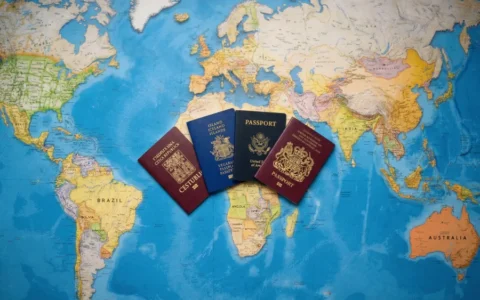Citizenship is no longer just a legal identity, it defines your mobility, access to global opportunities, and long-term financial strategy. For investors, entrepreneurs, and internationally minded families, understanding how citizenship can be acquired and why it matters more than ever is essential in 2025.
1. Citizenship by Birthright (Jus Soli)
The most traditional path to citizenship is through birthright, or ‘Jus Soli’—the right of the soil. This principle grants citizenship to individuals born within a country’s territory, regardless of their parents’ nationality. Countries such as the United States, Canada, and several Latin American nations (like Brazil, Argentina, and Mexico) still uphold this principle. Birthright citizenship has deep historical roots, dating back to Roman times and was later formalised under English common law in the 14th century.
2. Citizenship by Descent (Jus Sanguinis)
Also known as ‘Jus Sanguinis’—the right of blood—this path grants citizenship based on ancestry. Many countries in Europe (Italy, Spain, Germany), Asia (India, Japan), and Africa (Nigeria, South Africa) offer citizenship to individuals whose parents or grandparents held nationality, regardless of the person’s birthplace. This route is increasingly popular among diaspora communities seeking to reconnect with their ancestral homelands.
3. Citizenship by Naturalisation
This pathway allows individuals to become citizens after meeting residency and integration requirements. Naturalisation criteria vary significantly across countries, but common conditions include a minimum residency period, language proficiency, integration into society, knowledge tests, and an oath of allegiance. Countries like Portugal and the US require 5 years of residency, while others, such as the UAE, may require up to 30 years. In some cases, naturalisation can be paired with residence-by-investment programs.
4. Citizenship by Investment (CBI)
Citizenship by investment has gained traction for its efficiency and clarity. It allows eligible applicants to acquire citizenship by contributing to a country’s economy through direct investment. Caribbean nations like St. Lucia, St. Kitts & Nevis, and Grenada offer direct CBI programmes. Others, such as Portugal and Greece, provide Golden Visa pathways that can lead to naturalisation after several years. The advantages include increased global mobility, tax planning, wealth protection, and access to education and healthcare. For high-net-worth individuals, CBI offers flexibility, security, and legacy planning.
Summary
In today’s volatile world, the power of a second citizenship goes far beyond travel freedom. Whether through birth, bloodline, naturalisation, or investment, the right citizenship can open doors to new markets, safeguard family wealth, and future-proof global lifestyles. As we look ahead in 2025, global investors are not just acquiring passports—they’re investing in stability, access, and opportunity.








